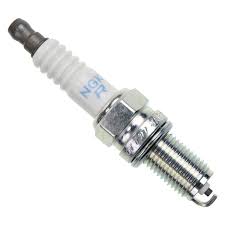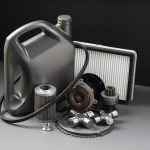Sparking Efficiency: The Impact of Spark Plugs on Fuel Efficiency

The spark plug is amongst the underappreciated constituents in the world of internal combustion engines. Though sometimes disregarded, Spark plugs are essential to the ignition process and directly impact fuel economy. Here, we’ll delve into the complex workings of spark plugs and examine how they affect your car’s fuel economy.
The Basics of Spark Plugs:
Before we dive into the impact on fuel efficiency, let’s briefly understand the role of spark plugs in the combustion process. Spark plugs are small, but their role is monumental—they generate the spark necessary to ignite the air-fuel mixture in the combustion chamber. This controlled explosion is what propels your vehicle forward.
Key Components of Spark Plugs:
- Electrodes: Spark plugs consist of two main electrodes—the central (positive) electrode and the ground (negative) electrode. The gap between these electrodes is critical for the creation of the spark.
- Insulator: The core electrode is surrounded by an insulator that stops electrical leakage. To endure high temperatures, ceramic materials are usually used in its construction.
- Shell: In addition to offering structural support, the spark plug’s shell or housing acts as a heat sink, removing extra heat produced during combustion.
Impact on Combustion Efficiency:
Fuel efficiency and combustion efficiency are directly correlated. Efficient combustion is promoted by a spark plug that operates properly, which guarantees that the air-fuel mixture ignites precisely when needed. Incomplete combustion may result from a misfiring or worn-out spark plug. This ultimately compromises fuel economy since it leads to wasted fuel, less power, and increased emissions.
Factors Affecting Spark Plug Performance:
- Gap Size: One important factor is the distance between the electrodes. An excessively large gap can result in misfires, while an excessively small separation can cause incomplete combustion.
- Material: Various materials, including copper, platinum, and iridium, are used to make spark plugs. While each material has benefits, platinum and iridium are more long-lasting and provide superior performance.
- Heat Range: The heat range of a spark plug refers to its ability to dissipate heat. Choosing the right heat range is crucial to prevent overheating or fouling of the plug.
Regular Maintenance:
To ensure optimal fuel efficiency, it’s essential to include spark plug maintenance in your regular service routine. Regularly inspect and replace spark plugs according to the manufacturer’s instructions. Furthermore, be aware of any signs of a deteriorating spark plug, such as rough idling, poor acceleration, or higher fuel usage.
Spark plugs are major in determining fuel efficiency in the complex parts inside your car’s engine. You can ensure that your engine runs at maximum efficiency, save money at the fuel pump, and lessen your environmental effect by investing in high-quality spark plugs, keeping the proper gap, and knowing the impact of materials and heat range. So, the next time you turn the key, remember that the tiny spark plug is silently playing a vital role in the overall performance of your cherished vehicle.
Image Credit: Image From Freepik







